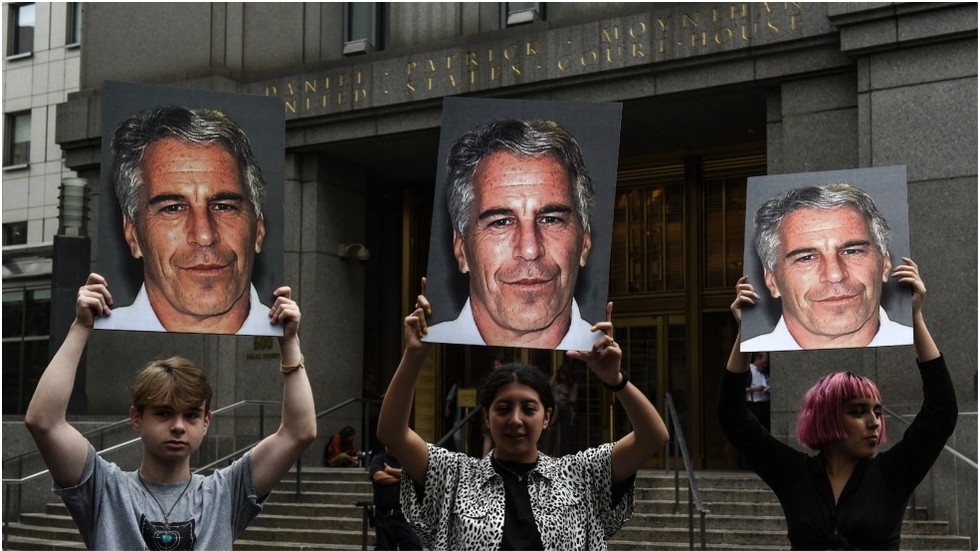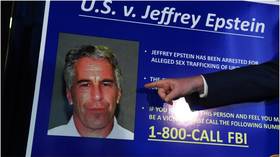
The documents show that he had written to Olympic doctor and fellow pedophile Larry Nassar and made a mysterious phone call

Protesters hold signs with photos of Jeffrey Epstein in New York, 2019.
Jail records from well-connected financier and convicted pedophile Jeffrey Epstein’s fatal stay at the Metropolitan Correctional Center in New York, obtained by the Associated Press and published in redacted form on Friday, reveal that his last hours included a mysterious phone call, an attempt to reach out to a fellow predator, and frustration over prison conditions.
The night before his death, Epstein absented himself from a meeting with his lawyers, telling a guard he was calling his mother, who had been dead by that time for 15 years, according to a document titled “Psychological reconstruction of inmate death.” It is not clear whom he actually called, though the document notes it was a New York City number.
Epstein’s psychological profile notes he was having a difficult time accustoming himself to prison and reprimands staff for not taking more care to watch over him. While he had no prior history of mental illness and was not diagnosed with one in jail, he was on some form of suicide watch for much of his stay in the prison, despite telling one jail psychologist he had a “wonderful life” and “would be crazy” to end it.
The pedophile wrote to disgraced former US Olympics women’s gymnastics team doctor Larry Nassar during his stay in jail, though the content of the letter is unknown as it was not included in the documents obtained by the AP. Nassar did not receive the letter, which was sent back to the jail’s mailroom.

Read more
Epstein complained often about noise in his cell – a malfunctioning toilet is mentioned repeatedly – and reported trouble sleeping, describing himself as a coward who did not like pain and expressing concern for his safety both in the general population and in his separate unit.
An incident of “self-mutilation” is mentioned, but was apparently expunged from the record. This is possibly a reference to when Epstein was found unconscious on the floor of his cell with marks around his neck. The profile also mentions that Epstein’s lawyers were depositing funds into the commissary account of his cellmate, “for unknown reasons.”
A document titled “Suicide timeline” details the comings and goings of the FBI and other authorities in the days after Epstein was found dead in his cell. The agency visits repeatedly before absconding with “all computer software from communication room new system running [sic].” The cameras on the tier where Epstein was housed were supposedly malfunctioning, a detail critics of the suicide narrative have highlighted as evidence of foul play.
Jail staff were frustrated by the absence of the surveillance camera video, noting the FBI had “confiscated” it and thus hampered their ability to “establish accurate timelines, confirm subjective reports, […] or discover new areas of inquiry.”
Epstein was found dead inside his cell in 2019 while awaiting trial for new sex trafficking charges. His death was ruled as suicide by the office of New York’s chief medical examiner.




